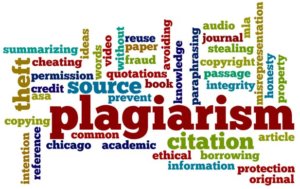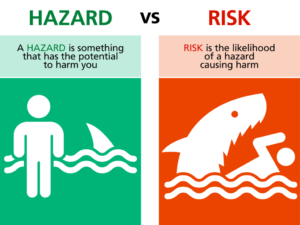Plagiarism was discovered exclusively in the chapters dealing with the assessment of published studies on health risks related to glyphosate. In these chapters, 50.1% of the content was identified as plagiarism….the study authors found clear evidence of BfR’s deliberate pretense of an independent assessment, whereas in reality the authority was only echoing the industry applicants’ assessment.
The BfR issued reports in 2014 and 2015 after a multi-year review of more than 300 studies and 900 other science publications on glyphosate and its formulated product Roundup, concluding:
…[T]he available data do not show carcinogenic or mutagenic properties of glyphosate nor that glyphosate is toxic to fertility, reproduction or embryonal/fetal development in laboratory animals.

The copy-and-paste allegation by the Greens is so explosive because the BfR evaluation was a central document used by the European Food Safety Authority (EFSA), which is charged by the European Commission to recommend regulations on foods and chemicals. In a toxicological profile released in 2015, the EFSA concluded:
Glyphosate is not proposed to be classified as carcinogenic under the EU regulation.… [N]either the epidemiological data (i.e. on humans) nor the evidence from animal studies demonstrated causality between exposure to glyphosate and the development of cancer in humans.
The BfR and EFSA glyphosate assessments matched the conclusions of other key chemical regulatory agencies around the world, including the World Health Organization. In September 2016, the US Environmental Protection Agency issued what is considered one of the most comprehensive reviews of the pertinent studies on glyphosate ever undertaken, authored by 13 prominent, independent scientists, concluding:
…there is not strong support for the ‘suggestive evidence of carcinogenic potential’ cancer classification descriptor based on the weight-of-evidence, which includes the fact that even small, non-statistically significant changes observed in animal carcinogenicity and epidemiological studies were contradicted by studies of equal or higher quality. The strongest support is for ‘not likely to be carcinogenic to humans’ at the doses relevant to human health risk assessment for glyphosate.
A June 2015 re-review of glyphosate by Health Canada concluded:
An evaluation of available scientific information found that products containing glyphosate do not present unacceptable risks to human health or the environment when used according to the proposed label directions.

Health Canada reviewed the data again in 2017, concluding, “[n]o pesticide regulatory authority in the world currently considers glyphosate to be a cancer risk to humans….” In the wake of the recent verdict against Bayer in a California lawsuit that found Monsanto responsible for the cancer of a school groundskeeper who had applied glyphosate, and the allegation of plagiarism, Health Canada reviewed the data for a fourth time. On January 14, it released a safety update, reaffirming its prior findings. Regarding the charge of plagiarism from industry-funded studies, Health Canada explained:
After a thorough scientific review, we have concluded that the concerns raised by the objectors could not be scientifically supported when considering the entire body of relevant data. The objections raised did not create doubt or concern regarding the scientific basis for the 2017 re-evaluation decision for glyphosate.
The sole agency to disagree with this consensus was the International Agency for Research on Cancer (IARC), in its March 2015 monograph. IARC found limited evidence that glyphosate is “probably carcinogenic” to agricultural workers. It further found:
Limited evidence of carcinogenicity in humans for non-Hodgkin lymphoma. The evidence in humans is from studies of exposures, mostly agricultural, in the USA, Canada, and Sweden published since 2001. In addition, there is convincing evidence that glyphosate also can cause cancer in laboratory animals.

IARC’s assessment is known as a hazard assessment, which means it did not assess real-world exposure to glyphosate. While IARC declared glyphosate a cancer hazard, its parent organization, the World Health Organization (WHO), has determined in three other reviews that the herbicide does not pose a cancer risk, especially not in the minute amounts potentially consumed in food. [See the GLP’s FAQ Is glyphosate (Roundup) dangerous? for a detailed discussion of hazard vs. risk] IARC itself explained the difference between its hazard assessments and the risk assessments done by others that have found glyphosate poses no significant health risks:
… the Monographs Programme identifies cancer hazards even when risks are very low at current exposure levels, because new uses or unforeseen exposures could engender risks that are significantly higher.
Molly Scott Cato, one of the EU Parliament members behind the new report on BfR plagiarism, maintained that industry influence was to blame for the discrepancy. “This [report] helps explain why the [IARC] assessment on glyphosate as a probable human carcinogen was so at odds with EU assessors, who awarded this toxic pesticide a clean bill of health, brushing off warnings of its dangers,” she told the Guardian.
In a response, the BfR rejected Cato’s assertion:
In Europe, it was customary and recognized in evaluation procedures for plant protection products that, following critical evaluation, assessment authorities would also integrate relevant passages of documents submitted by [industry] applicants into their assessment reports as long as these were up to standard….The BfR did not in any way adopt the applicant’s conclusions without first assessing their validity….The sole criterion for the consideration of study results is the scientific quality and evidence of the studies themselves. Possible interests of the applicants, politics or other interest groups cannot and must not play any role in a scientific assessment. The BfR rejects all accusations of deliberate deception.
The EFSA also dismissed the charge of plagiarism and questions about its independent review. Reiterating its 2017 conclusion about industry involvement in the EU’s glyphosate review, a spokesman for the agency told the Guardian:
The [new Parliament] report does not provide any new scientific information that calls into question the assessment and conclusions of glyphosate. Efsa stands firmly behind the integrity of its risk assessment processes and its conclusions on glyphosate.
On January 15, a French court banned Monsanto’s glyphosate-based Roundup Pro 360 weedkiller, citing ‘potential health risks.’ The court in Lyon, France ruled that the approval granted by French environment agency ANSES in 2017, based in part on the EFSA’s findings, had failed to take into account potential health risks.
Bayer, which acquired Monsanto in 2018, said it disagreed with the decision and was considering its legal options. It cited regulatory findings as well as hundreds of scientific studies that have found glyphosate safe as used.
Cameron J. English is the GLP’s senior agricultural genetics and special projects editor. He is a science writer and podcast host. BIO. Follow him on Twitter @camjenglish































